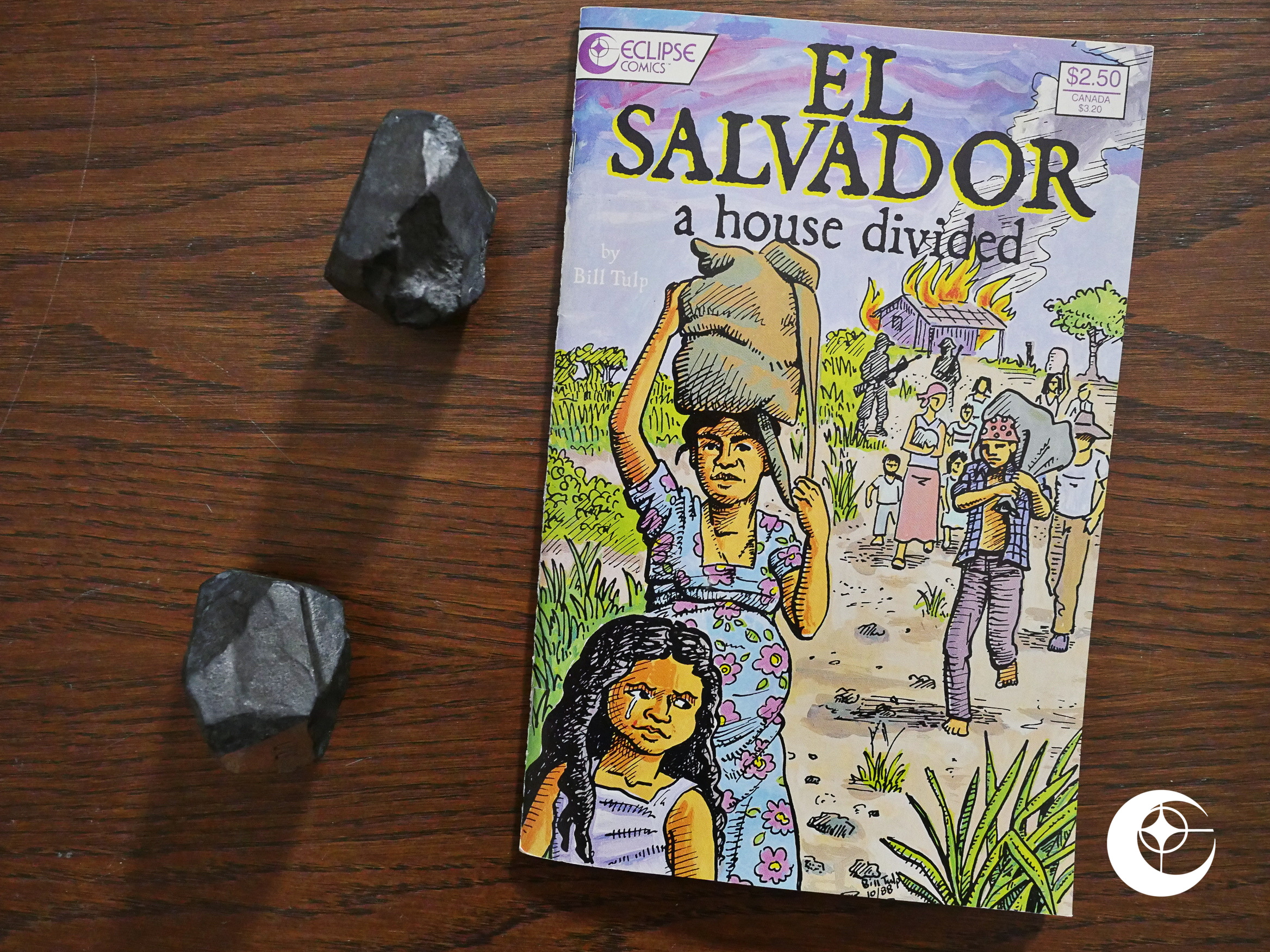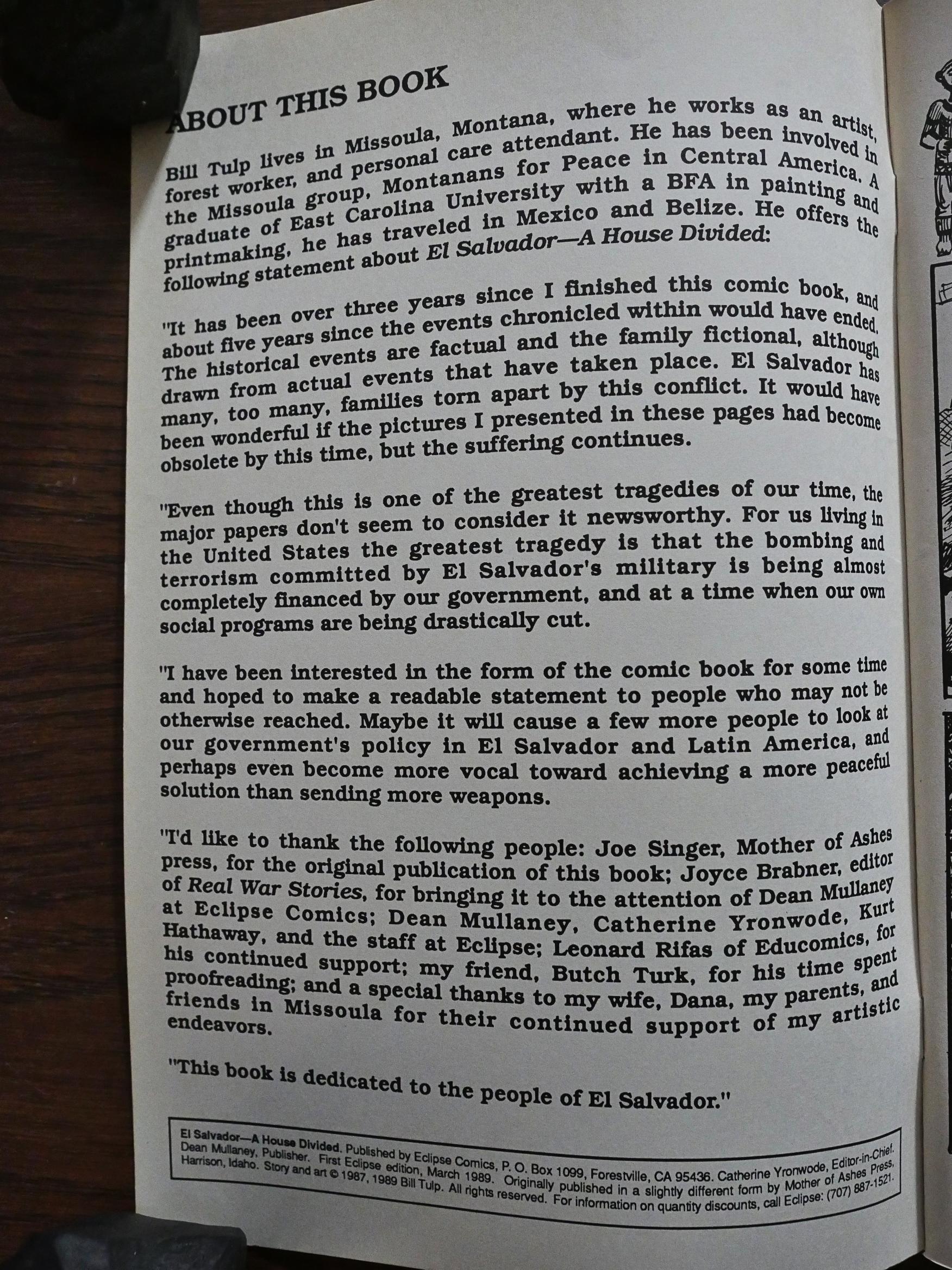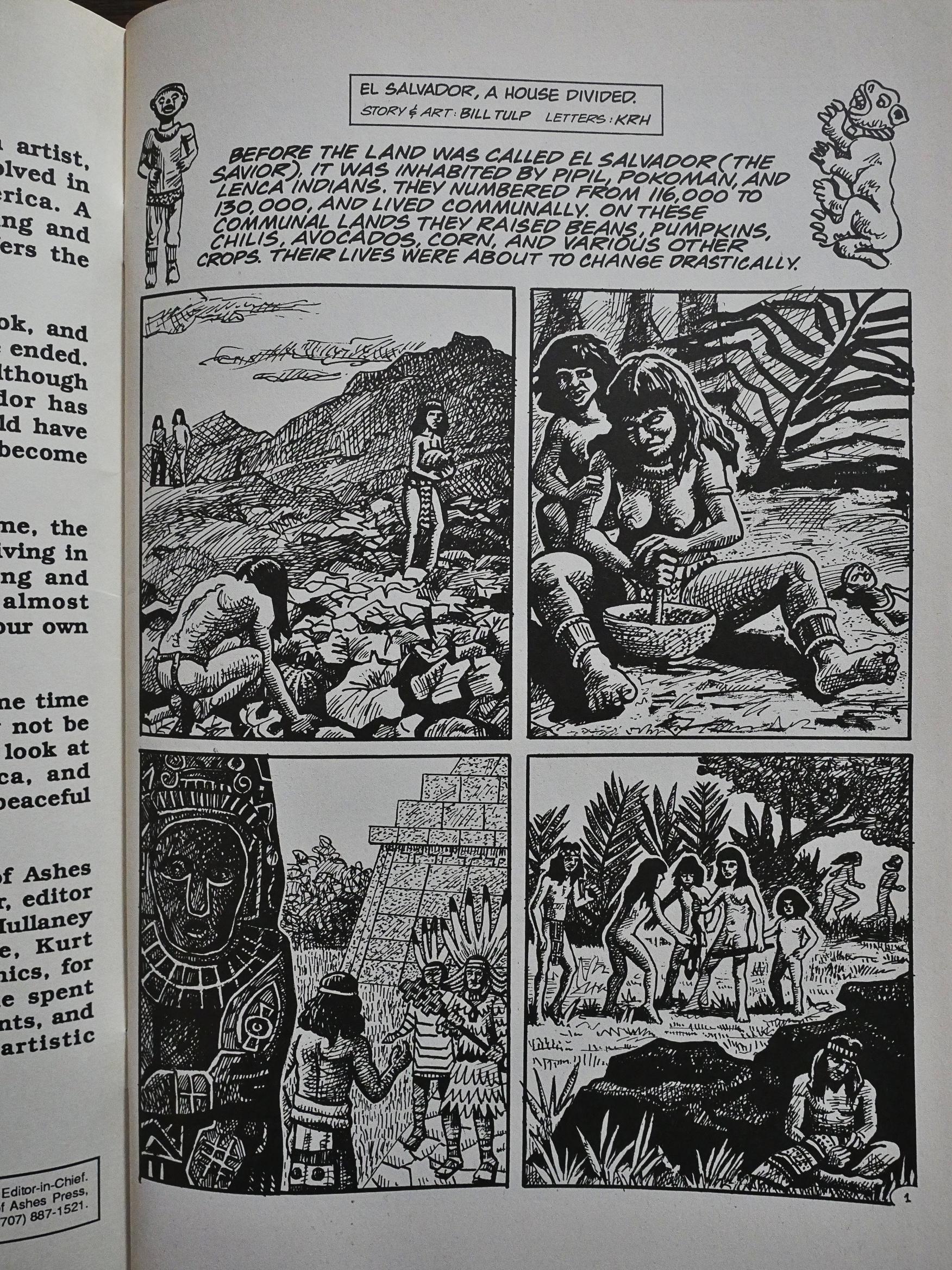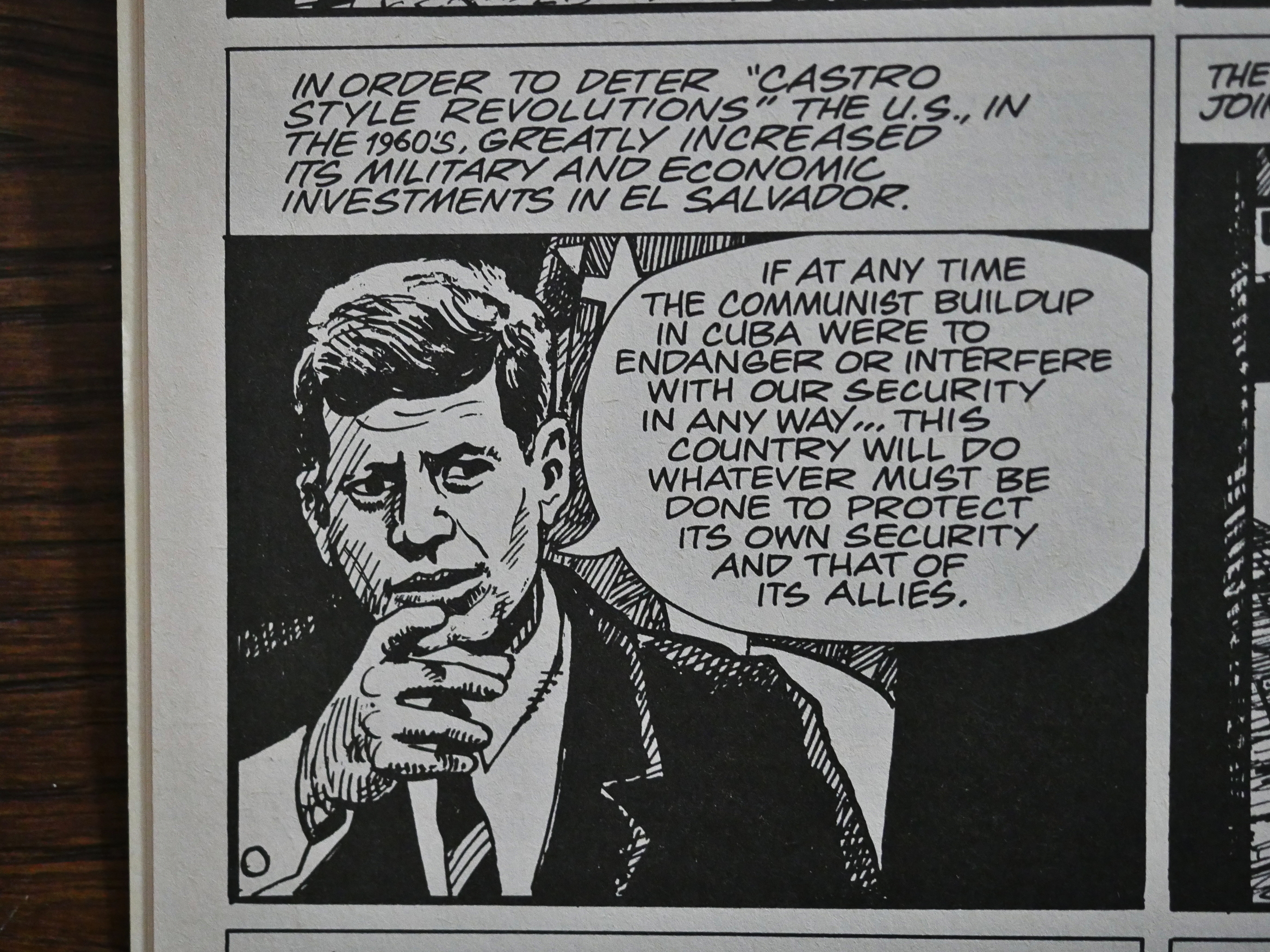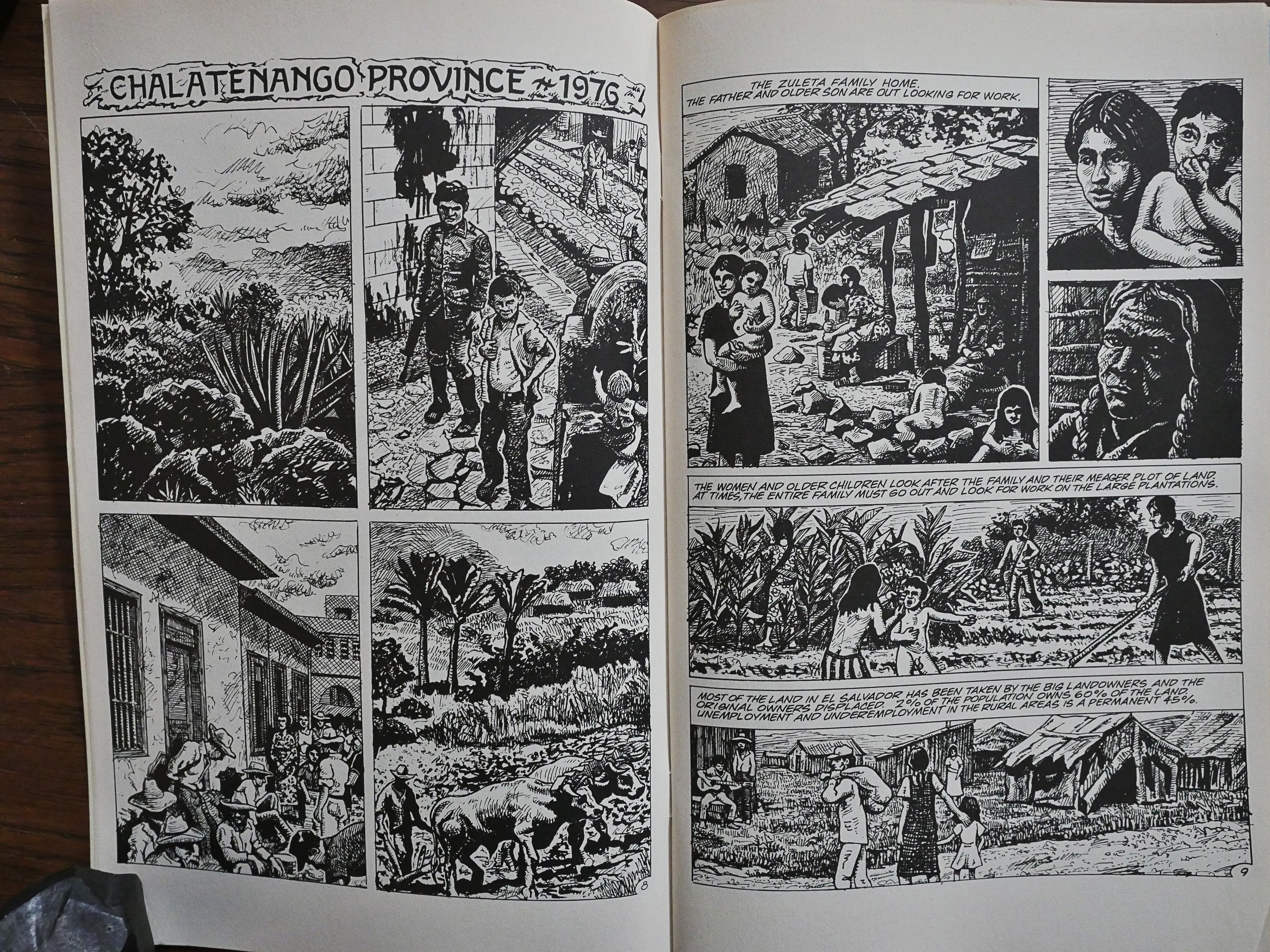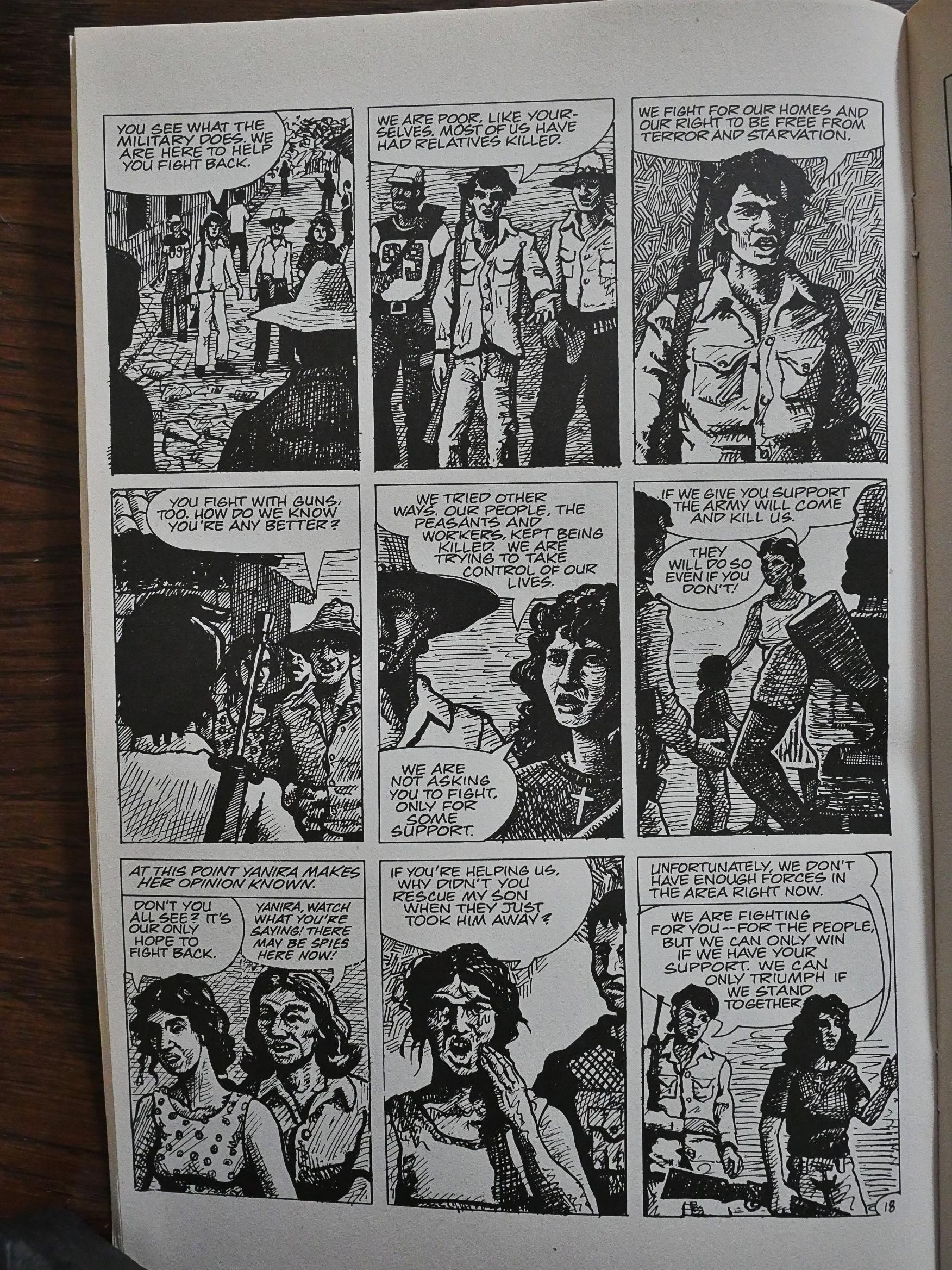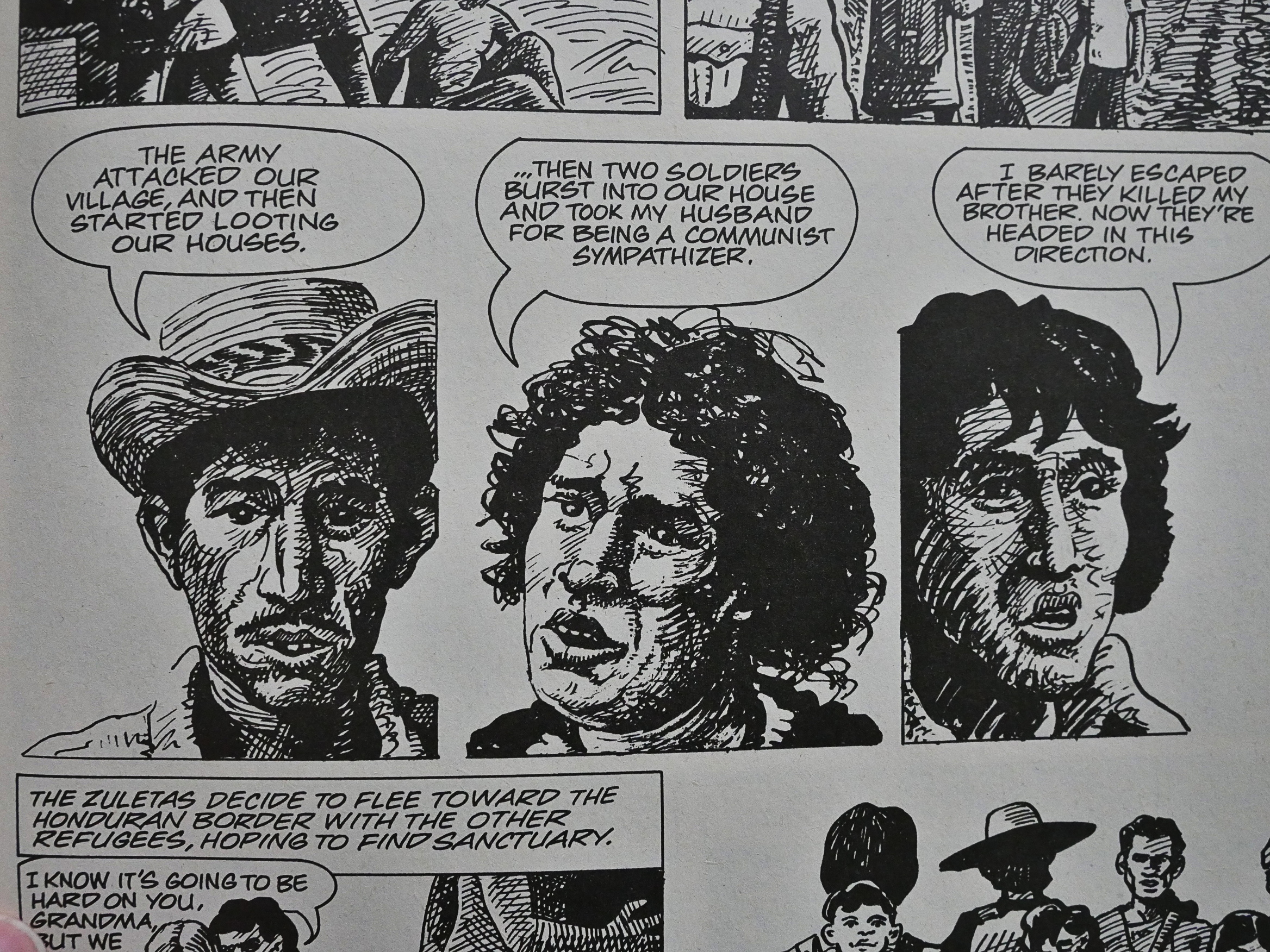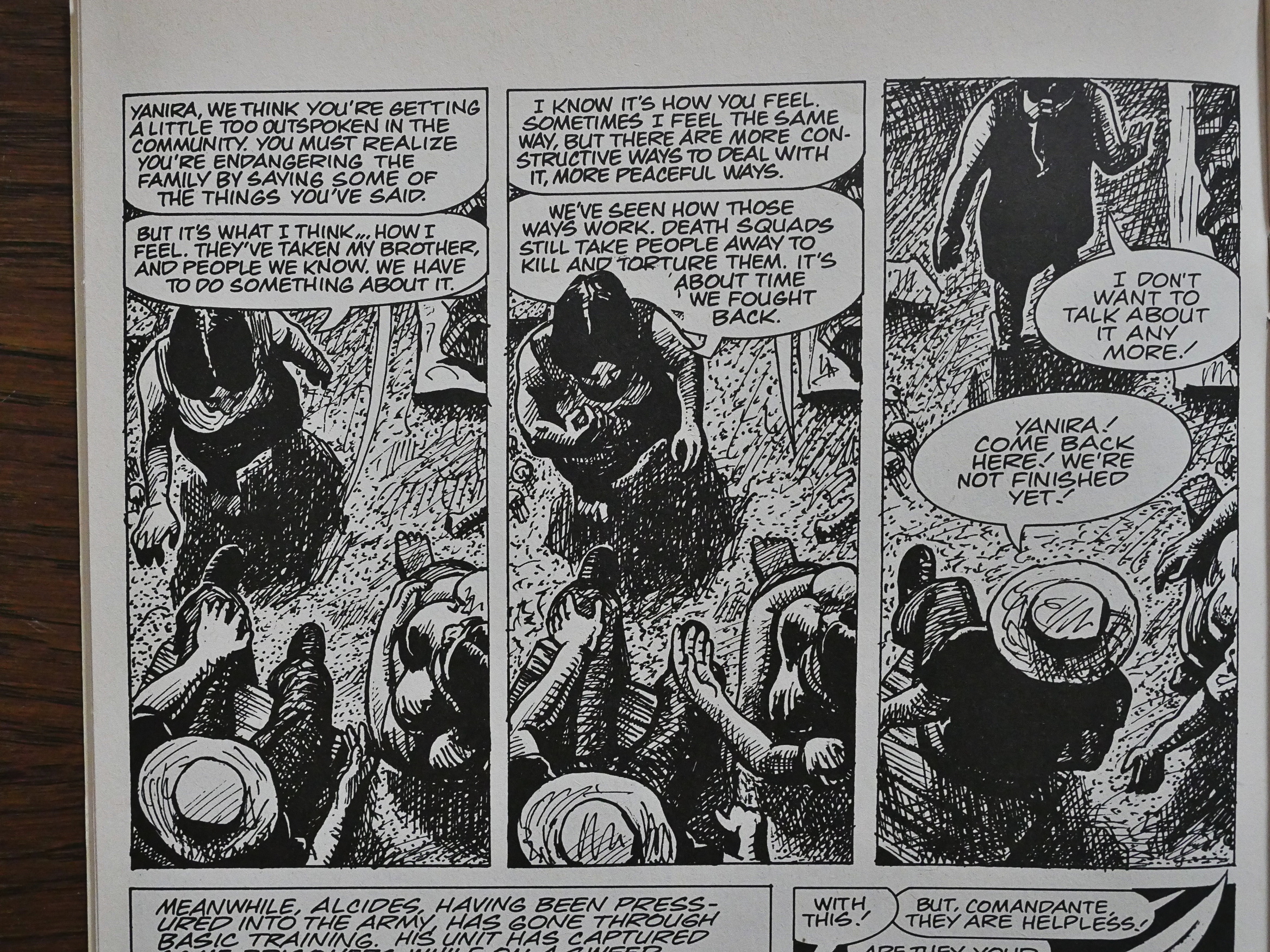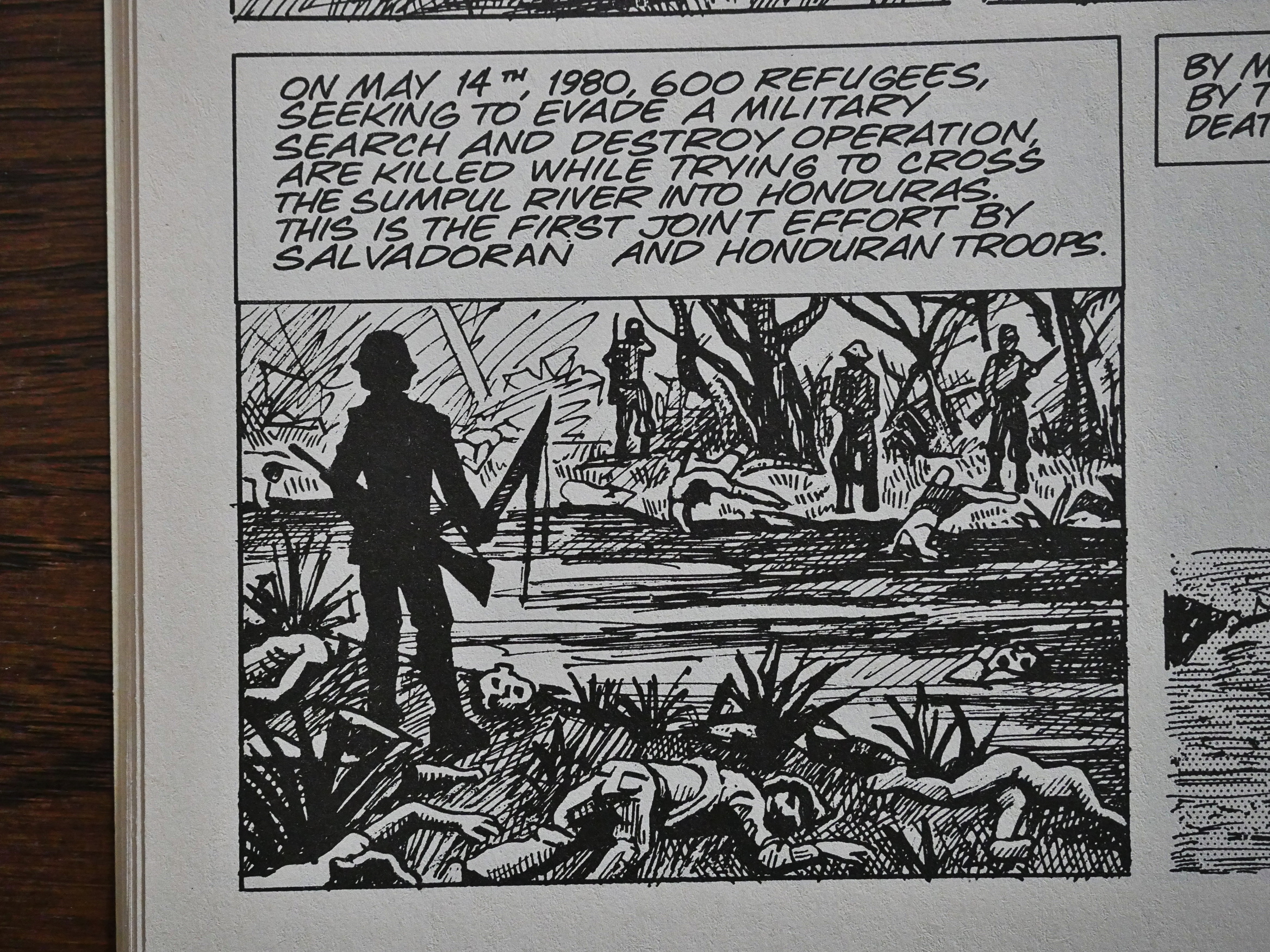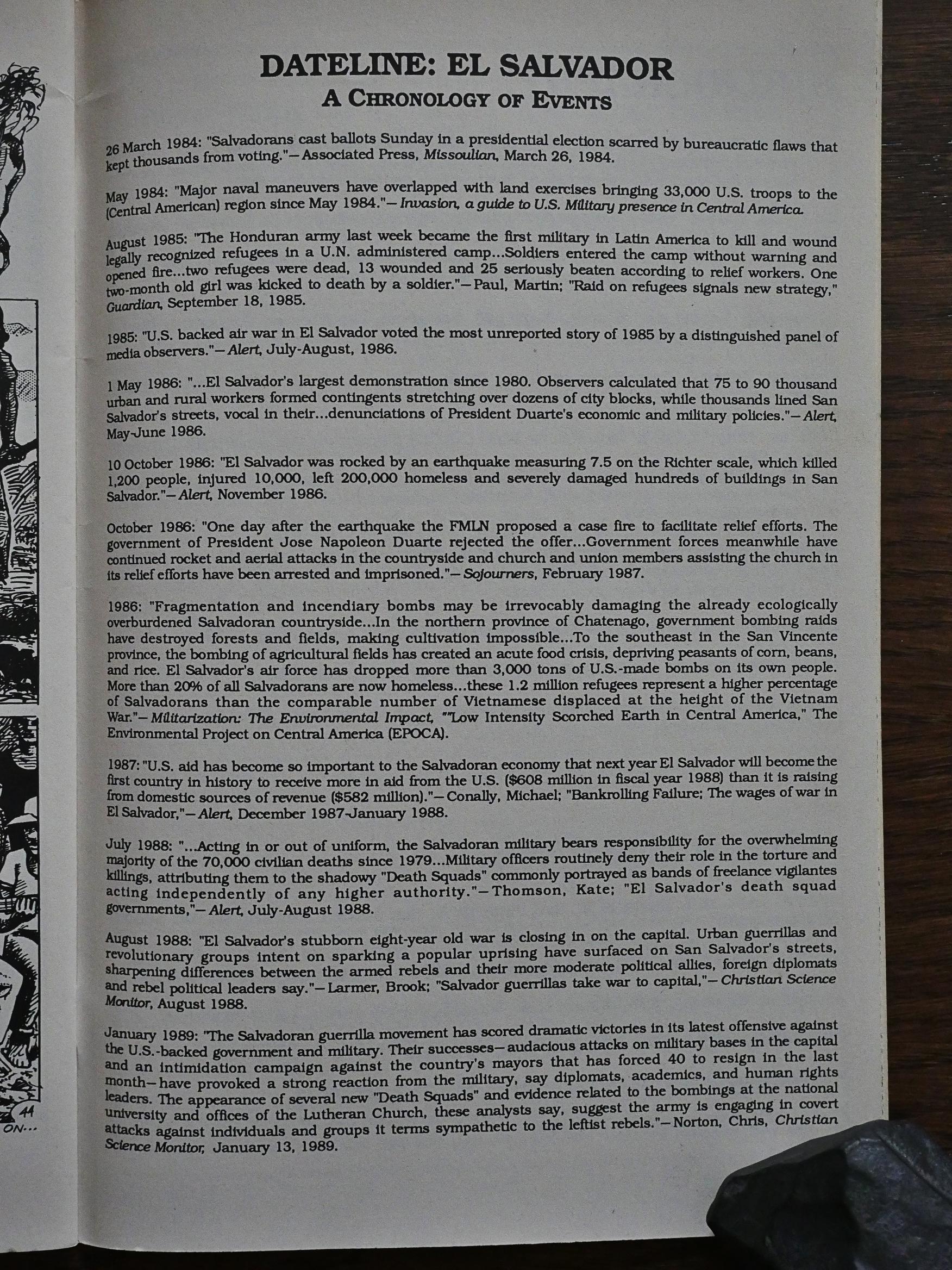El Salvador: A House Divided (1989) by Bill Tulp.
Eclipse’s foray into comics journalism/politics continues with this powerful book about El Salvador. It’ll make you angry and it’ll make you cry, and it’s, perhaps, the best of these books Eclipse published.
The introduction explains that this 48 page book (on semi-newsprint paper, but cardboardish covers) is a reprint of a book published four years earlier by Mother of Ashes Press. As Tulp explains, even if years have passed, the book is still relevant, because the war was still going on.
Tulp starts with a brief history of El Salvador, from 1524 onward. Despite being necessarily more of a sketch than an in-depth review, Tulp manages to provide an easy narrative version of the history.
I’m guessing Tulp worked quite a bit from photographic reference, but without making the people seem stiff and awkward, which is the norm. He makes everything fit in seamlessly, whether he’s drawing US presidents or Salvadorian jungles.
When we reach “the present” (i.e., 1976) the book changes mode completely and we start following a specific family in their daily lives and how they try to navigate the waters during this time when death squads, military raids and “disappearances” starts gearing up.
The book doesn’t say anything about whether this family is based on real people or not, but I’m guessing the latter. The family is a didactic tool to show us what’s happening: One son is forcibly drafted into the army (and has to kill civilians), the mother gets involves with women’s groups, the father just tries to keep things going, and a daughter becomes a revolutionary. I mean, these things could happen…
I think Tulp’s artwork is strong. He uses clear, strong layouts that tells the story in as straightforward a manner as possible. I like the hatching, but a few times he seems to go overboard as in the top left panel up there, where the horizontally hatched wall suddenly turns into a different wall.
His characters have real individuality.
Even if he keeps things simple overall, he sometimes does these bewildering angles. I mean, it’s still clear what’s going on, but it gives you a break from looking at these characters straight ahead. And it also provides you with a sort of paranoid feeling, spying on these people from above.
The dialogue isn’t exactly naturalistic. Tulp has the characters provide us information we need to understand instead of doing it all with omniscient captions, which would have been wearying.
Like I said at the start, this book will make you angry and it will make you cry. I hadn’t expected Tulp to be as proficient as he is in getting emotionally involved with these characters. Even if it’s clear that he’s propagandising to some extent, it’s impossible to not give the characters your sympathy.
A page at the end sums up what’s happened in El Salvador since the book was published, and it ends with the rebel forces getting ready to take the capital, but the war would last until 1992.
I bought this book in 1989 and I liked it tremendously back then, too. Amazingly enough, this seems to be Tulp’s only comic book.
This book has never been reprinted.

